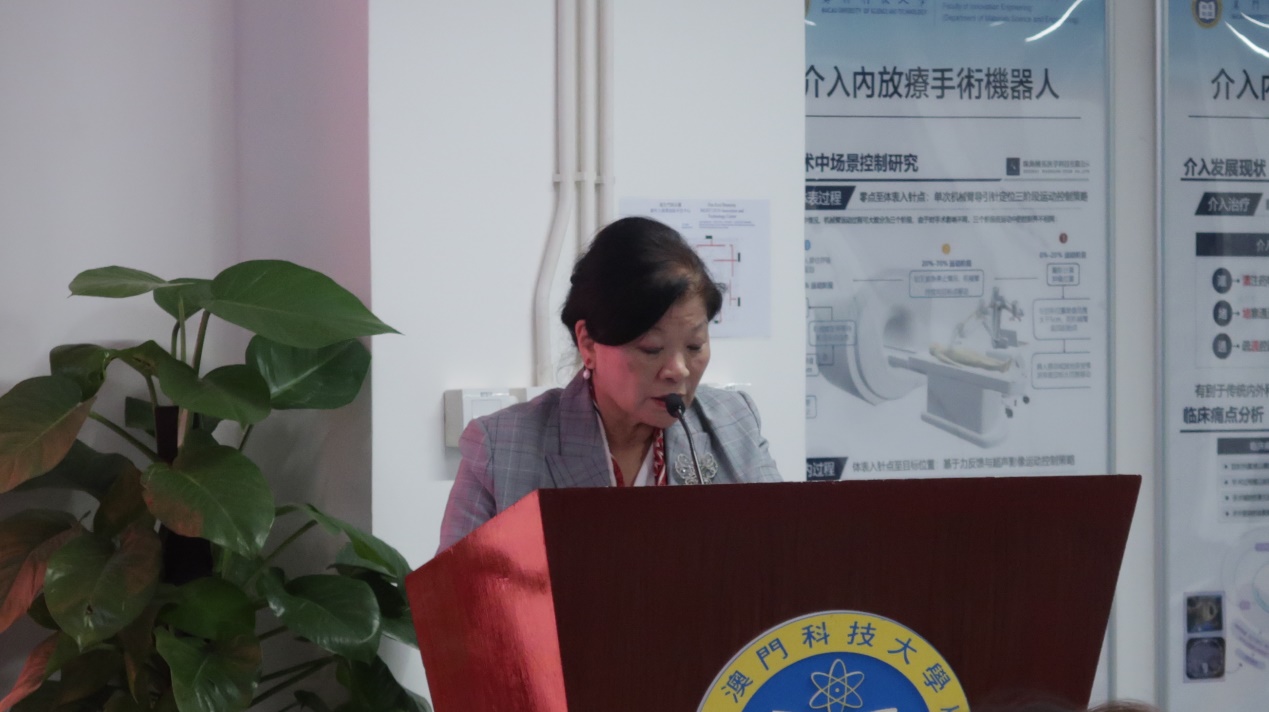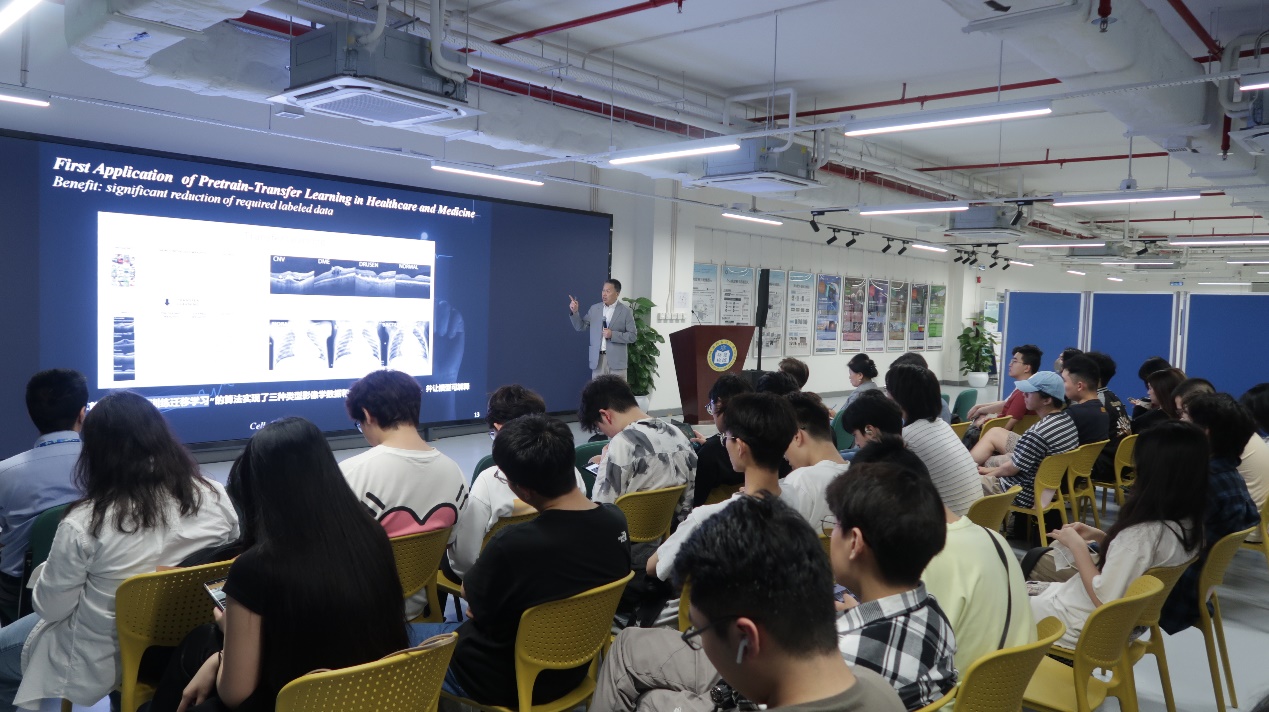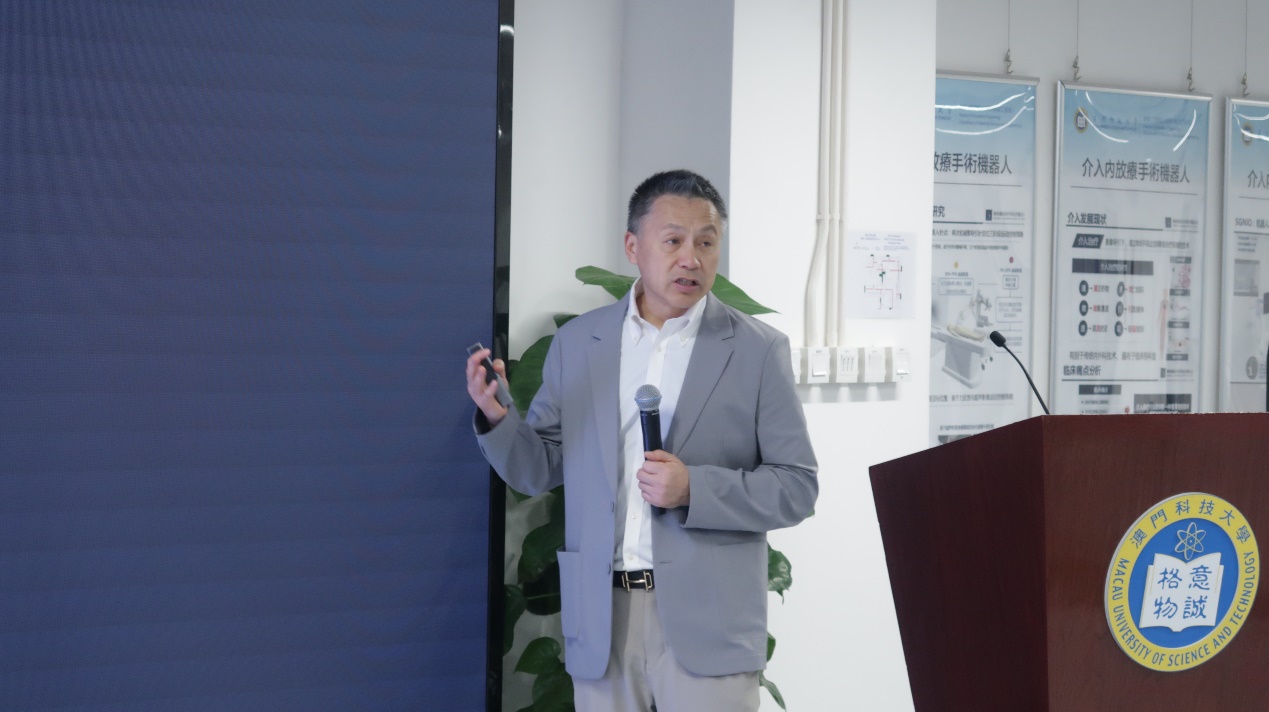On the occasion of the 24th Anniversary of the Macau University of Science and Technology, Faculty of Innovation Engineering held a series of Interdisciplinary Science and Engineering Lectures, and invited experts from different fields to give a series of special lectures and share their research results and professional knowledge in the field of cutting-edge science and technology with teachers and students of our university. There are altogether 9 lectures in the Interdisciplinary Science and Engineering Lecture Series, with the seventh lecture held at the 2:30 pm on May 2, 2024 at MUST LIU’s Innovation and Technology Center.
This lecture was hosted by Associate Program Director of Engineering Foundation Program Professor Chung, Sookja Kim of Department of Engineering Science and attended by President of M.U.S.T. Joseph Hun-wei Lee, Vice Dean of Faculty of Medicine Chair Professor Zhang Kang, Assistant Professor Cheong Weng Chon of the Department of Materials Science and Engineering, attracted 50 bachelor and master students from the Faculty of Innovation Engineering participated.

Professor Chung, Sookja Kim was hosting the lecture
Chair Prof. Zhang Kang, the Vice Dean of Faculty of Medicine, was invited to deliver a keynote speech on the theme of "Convergence of New Tools, Big Data and AI in Medicine and Biology", presenting that AI and its applications have recently experienced explosive growth across many industries, and the healthcare industry is no exception. With the accumulation of electronic health data, scientists were able to employ AI to mimic the diagnostic abilities of physicians across many medical specialties. Increasingly studies show that AI technologies can perform a wide array of functions, such as integration of immense clinical and high throughput biological data, aiding in diagnosis generation and therapy selection, multi-task learning on disease diagnoses, therapy and outcome predictions, making risk predictions and stratifying disease, reducing medical errors, and improving productivity. The eventual goal is that AI enables a much better healthcare delivery and biomedical research.
Chair Professor Zhang Kang was giving a speech
After the seminar, a number of questions were raised by attending teachers and students and the discussion was intense. Chair Prof. Zhang Kang shared his research achievements in the field of cutting-edge science and technology, which enriched the knowledge and skills of attendants in interdisciplinary science and engineering. Everyone was impressed with what they had gained from the seminar.

Chair Professor Zhang Kang was delivering speech to teachers and students






